About us
IDN Global News
Amendment to the Treaty on the Prohibition on Nuclear Weapons
Amendment to the Treaty on the Prohibition on Nuclear Weapons proposed by the Netherlands
(‘Temporality clause’)
Article 1 is not compatible with our commitments as a member of NATO, should Article 1 not narrow its scope. We therefore propose the following text proposal to be added as a paragraph 1.3 in order to bring the text in line with security policies that combine a role for nuclear weapons with the goal of complete nuclear disarmament. In addition, the paragraph would strengthen the ties between this instrument and the NPT.
Amendment to the Treaty on the Prohibition on Nuclear WeaponsRead More »
Veterans Ask U.S. to Sign UN Treaty Abolishing Nuclear Weapons
By Brian Trautman, Gerry Condon, Samantha Ferguson
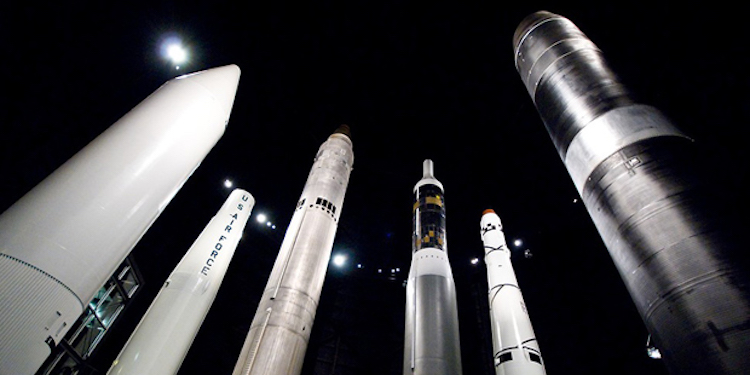
NEW YORK | SAN FRANCISCO | ST. LOUIS (IDN) – On July 7 2017, the United Nations, in a historic decision, approved a legally binding instrument to ban nuclear weapons, the Treaty on the Prohibition of Nuclear Weapons. Months of negotiations involving over 130 countries began in March 2017, culminating in a final draft endorsed by 122 countries. The treaty marks a significant milestone to help free the world of nuclear weapons.
The treaty emphasizes “the catastrophic humanitarian consequences that would result from any use of nuclear weapons.” It forbids participating states “to develop, test, produce, manufacture, otherwise acquire, possess or stockpile nuclear weapons or other nuclear explosive devices.” Additionally, it explains that the complete elimination of nuclear weapons from international arsenals “remains the only way to guarantee that nuclear weapons are never used again under any circumstances.”
Veterans Ask U.S. to Sign UN Treaty Abolishing Nuclear WeaponsRead More »
Finalmente han sido prohibidas las armas nucleares
Por Jayantha Dhanapala*
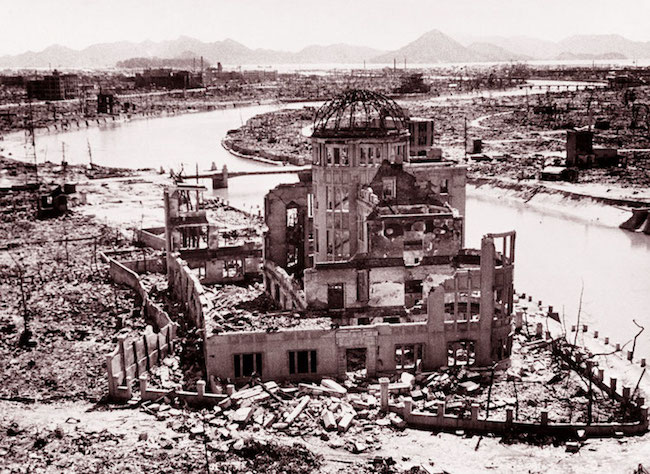
KANDY, Sri Lanka (IDN) – El 7 de julio de 2017, setenta y dos años después de que el arma más inhumanamente destructiva fuera inventada y usada en Hiroshima y Nagasaki, una Conferencia con la participación de la mayoría de los Estados Miembros de las Naciones Unidas decidió – por 122 votos a favor; una abstención; y uno en contra – adoptar un Tratado para la Prohibición de las Armas Nucleares.
Finalmente han sido prohibidas las armas nuclearesRead More »
What After the Adoption of the UN Nuclear Weapons Ban Treaty
By Susi Snyder

Susi Snyder is the Nuclear Disarmament Programme Manager for PAX in the Netherlands. She has published numerous reports and articles. She is an International Steering Group member of the International Campaign to Abolish Nuclear Weapons (ICAN), and a 2016 Nuclear Free Future Award Laureate. Previously, Mrs. Snyder served as the Secretary General of the Women’s International League for Peace and Freedom (WILPF). – The Editor
UTRECHT, The Netherlands (IDN) – It’s nearly impossible to believe: nuclear weapons are banned. Outlawed. Making their way to where they belong, the dustbin of history. Since July 7 2017, that is a new reality. There is now a treaty that makes it illegal to make, have, get or use nuclear weapons. But what’s the next step for the nuclear ban? [P 13] CHINESE TEXT VERSONPDF| JAPANESE TEXT VERSONPDF|KOREAN TEXT VERSON PDF
What After the Adoption of the UN Nuclear Weapons Ban TreatyRead More »
What After the Adoption of the UN Nuclear Weapons Ban Treaty
By Susi Snyder

Susi Snyder is the Nuclear Disarmament Programme Manager for PAX in the Netherlands. She has published numerous reports and articles. She is an International Steering Group member of the International Campaign to Abolish Nuclear Weapons (ICAN), and a 2016 Nuclear Free Future Award Laureate. Previously, Mrs. Snyder served as the Secretary General of the Women’s International League for Peace and Freedom (WILPF). – The Editor
UTRECHT, The Netherlands (IDN) – It’s nearly impossible to believe: nuclear weapons are banned. Outlawed. Making their way to where they belong, the dustbin of history. Since July 7 2017, that is a new reality. There is now a treaty that makes it illegal to make, have, get or use nuclear weapons. But what’s the next step for the nuclear ban? [P 13] CHINESE TEXT VERSONPDF| JAPANESE TEXT VERSONPDF|KOREAN TEXT VERSONPDF
What After the Adoption of the UN Nuclear Weapons Ban TreatyRead More »
Democracy at the UN: 122 Nations Vote to Ban the Bomb
By Alice Slater*
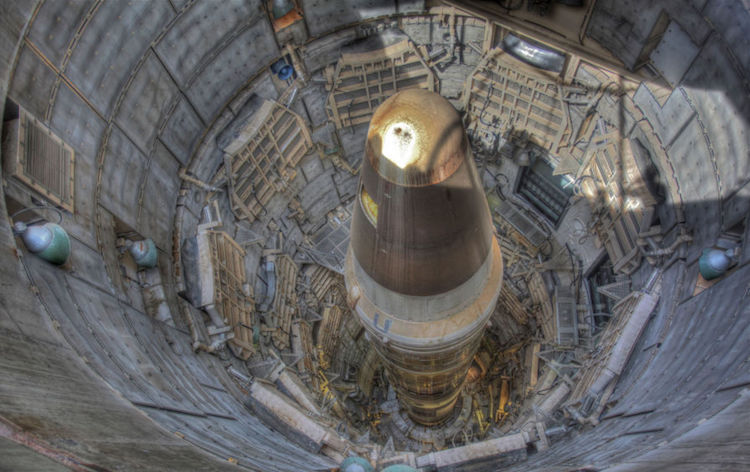
NEW YORJ (IDN-INPS) – On July 7 2017, at a UN Conference mandated by the UN General Assembly to negotiate a treaty to prohibit nuclear weapons, the only weapons of mass destruction yet to be banned, 122 nations completed the job after three weeks, accompanied by a celebratory outburst of cheers, tears, and applause among hundreds of activists, government delegates, and experts, as well as survivors of the lethal nuclear bombing of Hiroshima and witnesses to the devastating, toxic nuclear-test explosions in the Pacific.
The new treaty outlaws any prohibited activities related to nuclear weapons, including use, threat to use, development, testing, production, manufacturing, acquiring, possession, stockpiling, transferring, receiving, stationing, installation, and deployment of nuclear weapons. It also bans states from lending assistance, which includes such prohibited acts as financing for their development and manufacture, engaging in military preparations and planning, and permitting the transit of nuclear weapons through territorial water or airspace.
Democracy at the UN: 122 Nations Vote to Ban the BombRead More »
Un logro histórico para el desarme nuclear
Por Sergio Duarte, Embajador, ex Alto Representante de la ONU para Asuntos de Desarme *
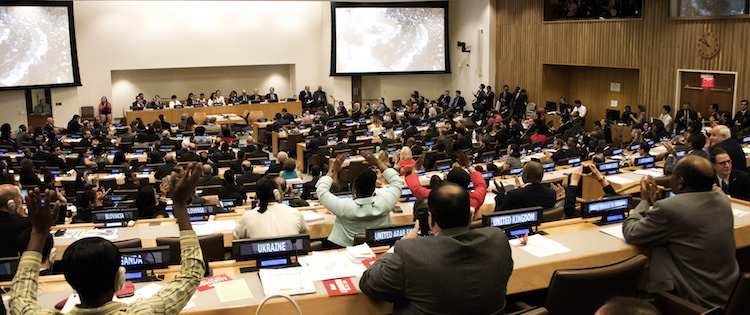
NACIONES UNIDAS (IDN) – Una gran mayoría de la comunidad internacional, junto con organizaciones e instituciones gubernamentales y no gubernamentales, lograron un hito importante en el tratamiento de las cuestiones de desarme al concordar un histórico Tratado sobre la Prohibición de las Armas Nucleares. El instrumento fue adoptado el 7 de julio de 2017 por 122 votos a favor, 1 en contra (Países Bajos) y 1 abstención (Singapur).
Entre el 15 y el 31 de marzo, el 17 de junio y el 7 de julio, la Conferencia de las Naciones Unidas negoció un instrumento jurídicamente vinculante para la prohibición de las armas nucleares, de conformidad con el mandato expresado en la 71/258 de la Asamblea General del 23 de diciembre de 2016. Los participantes se basaron en varios años de estudios, propuestas e iniciativas de los Estados, instituciones académicas y organizaciones de la sociedad civil, sobre los medios para lograr la eliminación completa de las armas nucleares.
Un logro histórico para el desarme nuclearRead More »
La sociedad civil se regocija ante el nuevo Tratado de la ONU que marca el comienzo del fin de la era nuclear
Por Ramesh Jaura
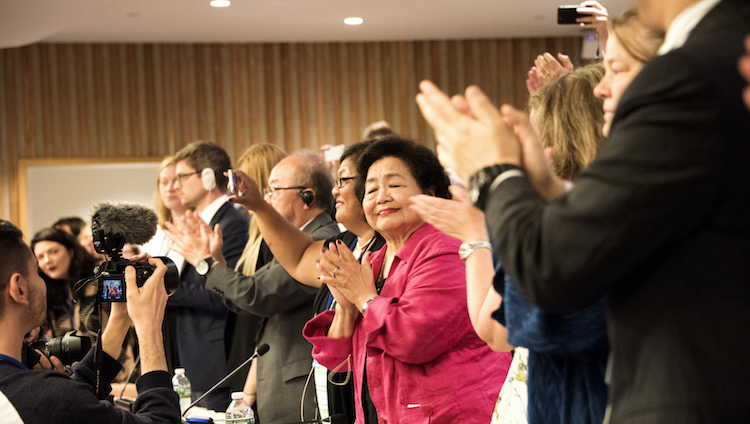
NACIONES UNIDAS (IDN) – Cuando los Estados miembros de las Naciones Unidas adoptaron el 7 de julio de 2017 un tratado jurídicamente vinculante que prohibía las armas nucleares y prohibía toda una serie de actividades conexas, fue un momento histórico y emotivo no sólo para la Embajadora Elayne Whyte Gómez de Costa Rica, presidente de la conferencia de la ONU. También fue un momento de profundo regocijo para una diversidad de organizaciones de la sociedad civil (OSC).
Veinticinco años después que el Secretario General de la ONU, Boutros Boutros-Ghali, abriera las puertas para que las OSC y otras organizaciones no gubernamentales contribuyeran al éxito de la Cumbre de la Tierra en junio de 1992, que subrayaba el inexorable vínculo entre medio ambiente y desarrollo, las OSC han ejercido con éxito su “poder suave” para ayudar a dar paso a un mundo libre de armas nucleares.
Grupos de Fe instan a la adopción universal del Tratado de Prohibición Nuclear de la ONU
Por Jamshed Baruah
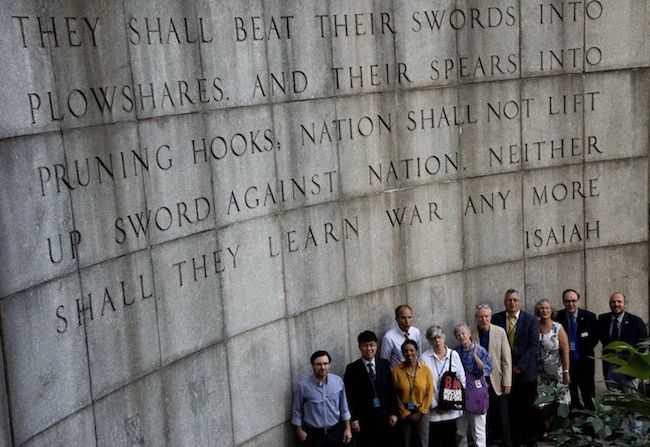
NACIONES UNIDAS (IDN) – Si bien acogen con gusto la aprobación del Tratado de las Naciones Unidas sobre la Prohibición de las Armas Nucleares “como un paso vital hacia el objetivo de un mundo libre de armas nucleares”, las Comunidades de Fe preocupadas por las Armas Nucleares, mediante una declaración pública pidieron su aceptación universal y su aplicación.
El Tratado, adoptado el 7 de julio de 2017 en la Sede de las Naciones Unidas en Nueva York, establece disposiciones detalladas que estipulan una prohibición completa del desarrollo, producción, posesión, almacenamiento, prueba, uso o amenaza del empleo de armas nucleares. Es el resultado de intensas negociaciones en la ONU que involucran a más de 120 gobiernos y muchos representantes de la sociedad civil.
Grupos de Fe instan a la adopción universal del Tratado de Prohibición Nuclear de la ONURead More »
Glaubensgemeinschaften fordern die weltweite Annahme des Atomwaffen-Verbotsvertrages
Von Jamshed Baruah

VEREINTE NATIONEN (IDN) – Während die Annahme des Atomwaffen-Verbotsvertrags der Vereinten Nationen „als ein wichtiger Schritt zum Ziel einer von Atomwaffen befreiten Welt“ von ihnen begrüßt wird, fordern Glaubensgemeinschaften, die sich von Nuklearwaffen tief betroffen fühlen, in einem „Öffentlichen Statement“ die weltweite Annahme und Umsetzung des Vertrages.
Der am 7. Juli 2017 im UN-Hauptsitz in New York verabschiedete Vertrag enthält detaillierte Bestimmungen über ein umfassendes Verbot der Entwicklung, der Produktion, des Besitzes, der Lagerung, der Prüfung, der Nutzung oder der Bedrohung durch den Einsatz von Atomwaffen. Er ist das Ergebnis intensiver Verhandlungen bei den Vereinten Nationen mit mehr als 120 Regierungen und vielen Vertretern der Zivilgesellschaft.
Glaubensgemeinschaften fordern die weltweite Annahme des Atomwaffen-VerbotsvertragesRead More »
Search
Newsletter
Report & Newsletter
Toward a World Without Nuclear Weapons 2022






